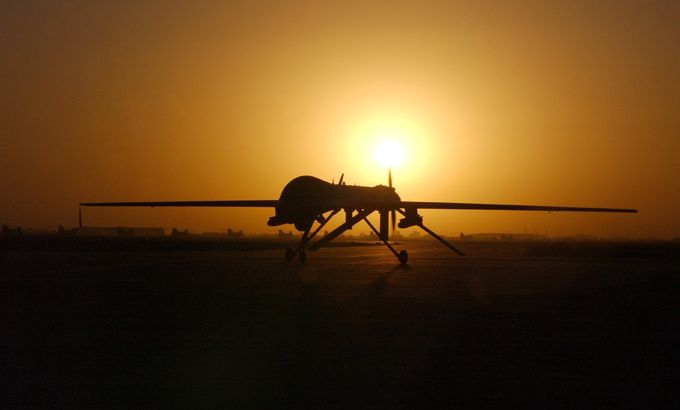
Probing Obama’s drone wars
As the UN launches an investigation into drone strikes, we examine the implications of targeted killings by the US.
A leaked US government document sets out a legal justification for President Barack Obama’s policy of extrajudicial killing, as the United Nations is preparing its own investigation into drone strikes.
Obama’s policy of using lethal force against suspected terrorists is coming under further scrutiny after a document alleged to be a Justice Department white paper was obtained by the US media.
|
“The vast majority of people who have lost their lives through the use of targeted killing technology are not Americans. They are citizens of different states in which this technology is being used on the sovereign territory of another nation. And there does now need to be, absolutely clearly with the proliferation of this technology, an immediate and focused debate within the international community in which the US plays its proper and active part in seeking to achieve consensus.“ – Ben Emmerson, the UN special rapporteur for human rights |
The document moves the goalposts in regards to when the government is authorised to carry out the killing of a US citizen, like Anwar al-Awlaki or his teenage son in Yemen in 2011.
Specifically, it broadens the criteria of who might be considered an “imminent threat” to the US.
According to the white paper, there are three criteria for the legally acceptable extrajudicial killing of a US citizen who is identified as a senior operational leader of al-Qaeda or an associated force.
Firstly, an “informed, high-level official” must conclude that a US citizen poses what it calls an imminent threat of violent attack against the US. Secondly, the government must conclude that capture is not feasible. And finally, the operation should be conducted under the applicable laws of war.
US citizens who are targeted need not have been charged with a crime, the paper states. Those targeted also do not need to be informed of the allegations against them. The US paper also contends that the government’s actions cannot be reviewed by any court.
The Obama administration has made repeated use of targeted killings. Most of these killings are conducted through drone strikes.
|
“I get much more concerned about the policy itself, rather than the technology used to carry out that policy. Because ultimately if you start restricting the terms of the technology used … there are other easy ways of striking people beyond just a remotely piloted aircraft; you don’t have to rely on a drone strike. So that decision to kill people is what I really get concerned about.“ – Joshua Foust, a foreign policy analyst |
Last week, the UN announced a major investigation into drone strikes.
Led by the UN’s special rapporteur on counterterrorism and human rights, the study will examine the extent of civilian casualties, and the wider consequences of an expanding global drone war.
It is estimated that, of the more than 3,000 people killed in US drone strikes in Pakistan, Yemen and Somalia, 500 were civilians.
While US officials say that the strikes exclusively target terrorists, critics argue that drone strikes cause high civilian casualties. Critics also say the lethal attacks are illegal under international law.
To discuss the latest information on how the US views its drone strikes and the wider implications of its programme, Inside Story Americas, with presenter Shihab Rattansi, is joined by guests: Ben Emmerson, the UN’s special rapporteur on counterterrorism and human rights; Marcy Wheeler who writes the political blog, Emptywheel; and Joshua Foust, a foreign policy analyst and columnist for PBS.
DRONE STRIKES
- In September 2011, a drone strike killed two US citizens in Yemen
- In October 2011, a drone strike killed a third US citizen in Yemen
- The Obama administration’s John Brennan helped manage the drone programme
- Brennan’s confirmation hearing for CIA director is scheduled for Thursday
- The UN will examine the civilian impact of drone strikes, after several states requested this investigation last June
- The investigation will focus on 25 cases of drone strikes
- These case studies include strikes in Yemen, Pakistan and Afghanistan
- Examined countries will also include Somalia and Palestine
- The inquiry’s final report is to be presented before the UN in October 2013